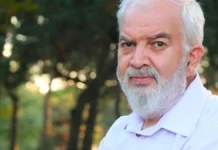A documentary telling the stories of some of the victims of Turkey’s post-coup crackdown who were able to leave the country through Greece premiered on YouTube on the anniversary of the abortive putsch of July 15, 2016.
Titled “I crossed the Maritsa, leaving behind 40 years of memories,” the documentary gives voice to supporters of the faith-based Gülen movement who fled persecution after imprisonment or trial on terrorism-related charges. Its title is taken from a poem by Halil Dinç, a teacher who died shortly after taking refuge in Greece. The Maritsa River constitutes part of the border between Turkey and Greece and is used frequently by refugees.
Turkish President Recep Tayyip Erdoğan has been targeting followers of the Gülen movement, a faith-based group inspired by Turkish cleric Fethullah Gülen, since the corruption investigations of December 17-25, 2013, which implicated then-Prime Minister Erdoğan, his family members and his inner circle.
Dismissing the investigations as a Gülenist coup and conspiracy against his government, Erdoğan designated the movement as a terrorist organization and began to target its members. He locked up thousands including many prosecutors, judges and police officers involved in the investigation as well as journalists who reported on them.
Erdoğan intensified the crackdown on the movement following the coup attempt in July 2016 that he accused Gülen of masterminding. Gülen and the movement strongly deny involvement in the abortive putsch or any terrorist activity.
Following the abortive putsch, the Turkish government declared a state of emergency and carried out a massive crackdown. One hundred sixty-four media outlets, 1,058 educational institutions and close to 2,000 NGOs were shut down without any due process. More than 130,000 public servants, including 4,156 judges and prosecutors, as well as 29,444 members of the armed forces were summarily removed from their jobs for alleged membership in or relationships with “terrorist organizations” by emergency decree-laws subject to neither judicial nor parliamentary scrutiny.
According to a statement by Turkish Interior Minister Süleyman Soylu, a total of 622,646 people have been the subject of investigation and 301,932 have been detained, while 96,000 others have been jailed due to alleged links to the Gülen movement since the failed coup. The minister said as of February 2021 there are 25,467 people in Turkey’s prisons who were jailed on alleged links to the Gülen movement.
The Turkish government accepted such daily activities as having an account at or depositing money in a Gülen movement-affiliated bank, working at any institutions linked to the movement or subscribing to certain newspapers and magazines as benchmarks for identifying and arresting tens of thousands alleged members of the movement on charges of membership in a terrorist organization.















